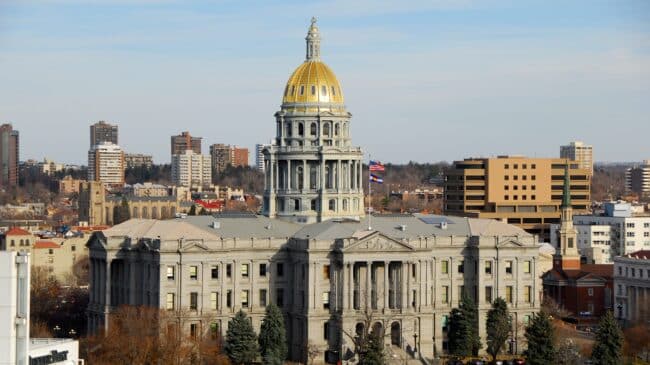In 2018, Colorado implemented pension reforms to put the state’s public pension plan on a path toward a more sustainable and secure future. But in response to significant uncertainty from the pandemic, state lawmakers elected to forgo a supplemental pension payment in 2020, which was a major part of the 2018 pension reform.
This year, with rebounding government revenues and an anticipated influx of federal stimulus and COVID-19 pandemic relief funding, Colorado’s policymakers have an opportunity to make up for 2020’s lost payment. A new report finds that making a $500 million payment into PERA today could generate significant annual savings that would start as soon as next year.
In the years leading up to the 2018 pension reform, Colorado’s Public Employees’ Retirement Association (PERA) saw significant growth in unfunded pension liabilities—debt—and the plan’s long-term financial future looked bleak.
In response to these issues, Colorado policymakers passed a bipartisan pension reform effort reducing the accrual of unfunded liabilities, dedicating more funding to the plan through additional contributions from both the state and plan members, and committing state employers and employees to significantly improve PERA’s funding over the next 30 years. The bill aimed to have public pension contributions and benefits that adjust automatically to match the financial needs of the plan.
The latter part of those changes, the automatic adjustments, have already had an impact on state and household budgets. Since annual contributions into the plan haven’t been sufficient to bring them to full funding within thirty years (as projected by plan actuaries), automatic contribution increases and reductions to cost-of-living adjustments (COLAs) have occurred in each of the two years following the reform. This means that the state and its employees are each paying 1 percent more in annual contributions than they did in 2019 and that COLAs for retirees have been reduced by a half percent.
A new report from the Pension Integrity Project at Reason Foundation, the Common Sense Institute, and Secure Futures Colorado examines how a cash infusion could impact these automatic adjustments over the next decade.
The report finds that dedicating an extra $500 million to PERA this year would likely allow for contribution and COLA levels to be adjusted back to pre-pandemic levels. According to the analysis, the state would see an immediate reduction of more than $41.5 million in annual contributions starting in 2022. Employees would also see a reduction in their pension costs, with each member needing to pay .5 percent less out of every paycheck. The total 10-year savings for both employees and the state are estimated to be around $871 million.
These savings are expected even if PERA’s assets reach a 6 percent investment return (which is 1.25 percent below the plan’s expected investment return), but the total savings would depend on the actual results of the plan’s year-to-year market results.
Adding extra funding to PERA while the state has the budgetary flexibility to do so would improve the state’s ability to manage costs in the event of another recession. A $500 million payment would not only make up for the lost supplemental payment that was not made in 2020, but it would also build a buffer into PERA’s funding so the plan could absorb another future period of significant market turbulence and low investment returns.
Given the many benefits outlined in the report, Colorado lawmakers should take advantage of this moment to reinforce their commitment to funding pensions.
Paying an extra $500 million into the Colorado Public Employees’ Retirement Association plan now would benefit all parties involved. It would save Colorado and taxpayers millions in annual contributions, reduce the contributions taken from state employees’ paychecks, and provide retirees with higher cost-of-living adjustments. In addition to these immediate advantages, Colorado’s workers and taxpayers would have a more stable public pension plan in the years to come.
Full Report: Colorado PERA—How Spending Now, Helps Save More Later

